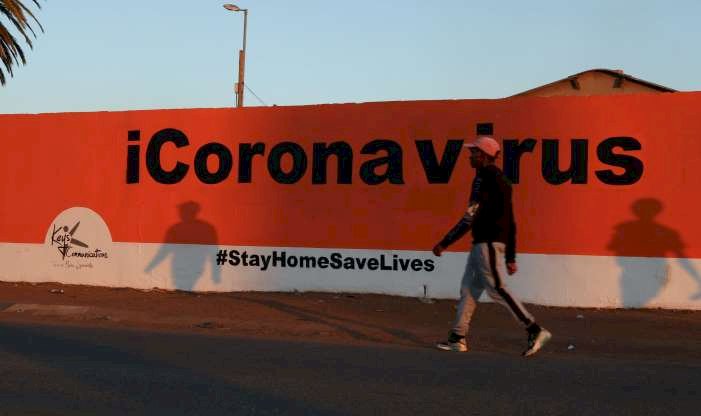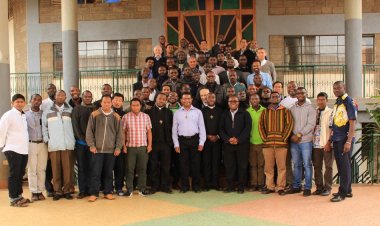What happens on a cruise when the party is over
The Pandemic Parable

What Do You Do on a Cruise Ship When the Party’s Over?
If there is an image that corresponds to the coronavirus crisis of our society, it would be that of the Diamond Princess cruise ship (like many others currently) infected in mid-cruise. Before the Covid-19 infection was noticed, it had every modern comfort and entertainment. The bands were playing, the theatres were full, the restaurants crowded, and its boutiques well-stocked.
The atmosphere was marked by fun and laughter without any worries. The ship was full of dazzling spectacle and gadgetry. An intense nightlife made sure there was always one more joke or one more dance to keep the party going. Passengers put aside their tragedies, misfortunes and problems to enjoy an almost surreal world of escape, unrestraint, and delight.
Then the C-virus appeared and changed everything drastically.
It was still the same ship. All its facilities were intact. Physically, it still contained every earthly delight. However, the party was over. This floating paradise became a hellish nightmare.
Modern society has been living a surreal cruise ship existence. Outwardly, everything seemed fine and booming. Everything marketed a festive veneer to life. The hedonist culture created an atmosphere of fun, unrestraint and laughter.
Like the passengers on a cruise, most citizens (even the poor) put up with their tragedies, misfortunes, and problems to enjoy life to the best of their abilities especially for a few days after pay-day!
However, life’s problems (even the minor ones) do accumulate. It has not been easy to act as if everything is fine. Beneath the surface, corrosive forces were at work. Society has been damaged by a range of harmful social, economic, and cultural factors. Economically, countries reached a point of unsustainability. Politically, nations found themselves struck by polarization and strife. Many grew from lonely, unhappy and stressed inside the frenetic intemperance of daily life.
However, despite all these difficulties, the appearance of the party is what kept most states together. The band played, the show went on and everyone strove to keep the party going.
Then this minuscule sneaky virus put an end to the party. It is now stopping the whole world from partying. The cruise is reduced to a massive ship full of people trying to stay away from one another. There are no more games, dances, or songs. The vessel is an increasingly immobilized platform from which no-one can escape and everyone is living with uncertainty, anxiety, and the fear of death.
And so the questions loom: What do you do on a cruise ship when the party’s over?
How do you spend time isolated on its haunted decks?
What do you think about while locked down in your cabin?
People are being forced to ponder these things. The answers they get may well determine their future and that of post-modern cultures.
One way some people will pass the time is to cultivate longings for more partying. Such passengers scheme about what they will do when things get back to “normal.” They will waste their time by trying to turn their isolation into little parties of lesser entertainments, games and pastimes, even while a few fellow party-goers perish.
Those in this group will experience great anxiety as time passes. They will begin to doubt if “normal” will ever come back. They will be the first to complain that not enough is being done to bring the party back. With each passing day, they will be prepared to give up more freedoms and control over their lives to their governments in exchange for the promise of an ever-smaller party in the future.
Worst of all, these pleasure-seekers will not learn any lessons in this episode. They will not dare to question the wisdom of living in a never-ending party that takes its toll upon their souls and lives. For them, fun and pleasure are the supreme values.
Others will pass the time differently. In the quiet of the tragic pandemic, these passengers will reflect on what has happened. They will not waste their time in frivolous and useless pursuits. They will strive to restore the health (physical, mental and spiritual) of everyone on board and take reasonable and common-sense measures to transform the pleasure-cruise into a trip with a mission to make the world a better place, encouraging all on board to be not mere passengers but become crew members.
With each passing day, they begin to look critically at the party and reflect upon things that are greater than comfort and pleasure. In the process, they rediscover life’s true meaning in family, community, the nation, and the Church. They begin to imagine a return to order beyond the party’s frenetic intemperance. Amid their tragedy, they turn to God and seek His pardon and aid. The critical situation forces them to consider those essential life questions that modernity hid amid the din and noise of the party.
- Adapted from a blog by John Horvat II


















